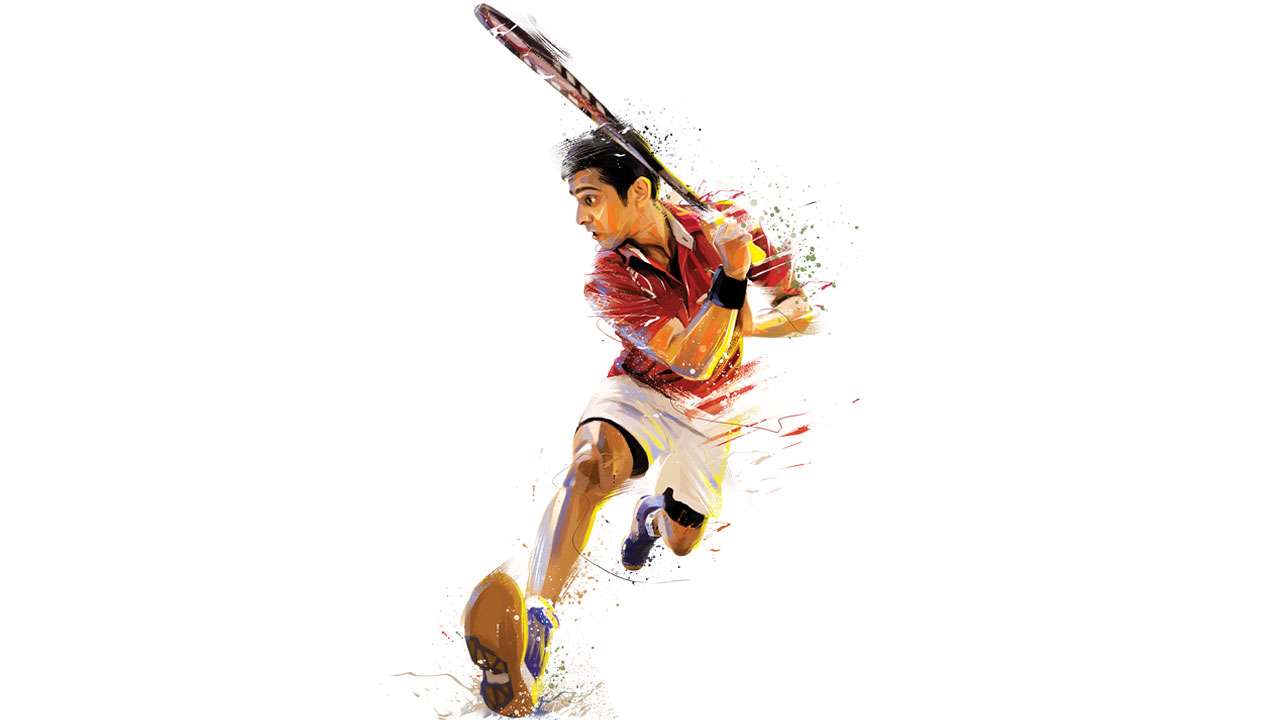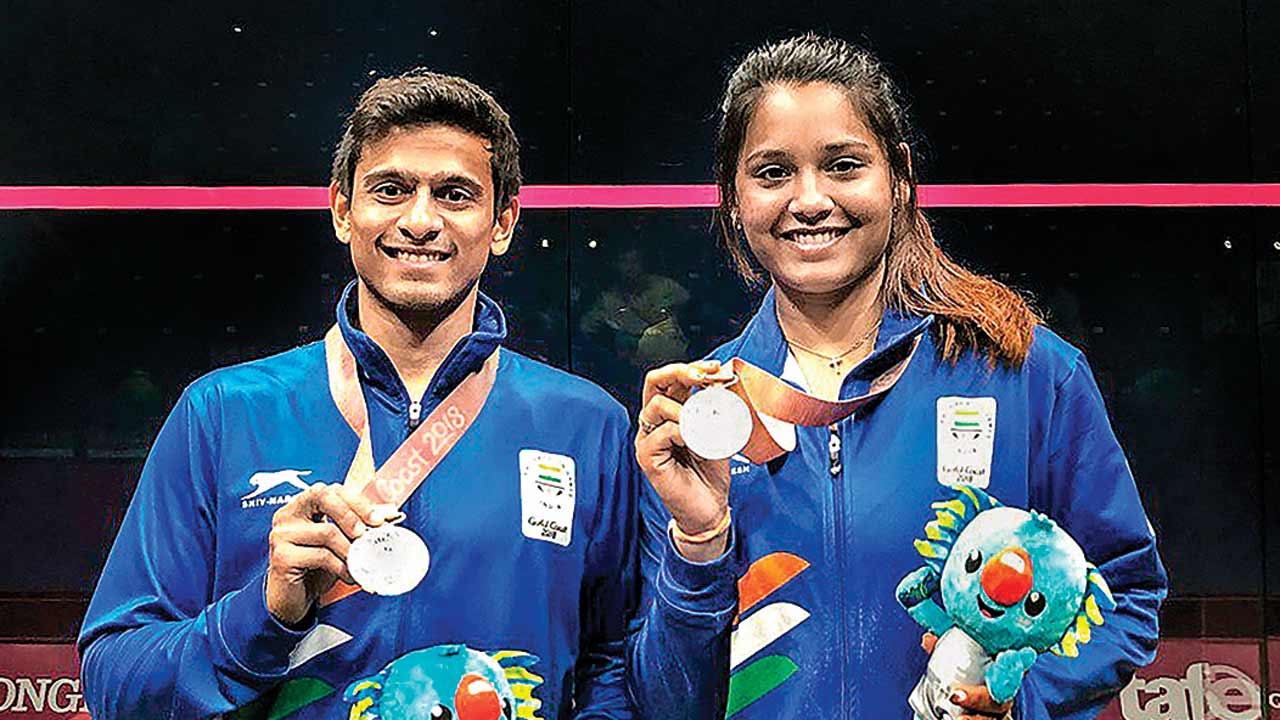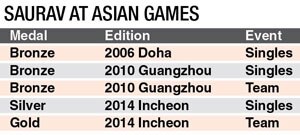
Saurav Ghosal probably had the most emotional roller coaster 2018 Commonwealth Games (CWG) among all athletes in the Indian contingent.
If his shock ouster from the second round in singles wasn’t bad enough, the feat of winning his first CWG medal, a silver in mixed doubles with Dipika Pallikal, was ruined by some controversial refereeing in the final that left both the players feeling robbed of a gold.
The contrasting emotions of pain, anger and a bit of joy forced Saurav to pen a heartfelt post on social media soon after the Games, writing about how the experience made him take “stock of my life”.
In a chat with DNA before heading to Indonesia, the 31-year-old talks about how he came through that emotionally draining and challenging period, the lessons he learnt from it, and how he is entering his fourth Asian Games with a different perspective and mindset. Excerpts from an interview:
It’s been pretty good. I’m quite happy with the way things have gone this summer. I’ve managed to learn a lot, and that should put me in good stead to produce some good performances going ahead.
To be fair, it took me a month, month-and-a-half. It finished in mid-April, and only by May end of first week of June did I get mentally OK in terms of putting my head down again and figuring out what I wanted to do and didn’t want to do.
It’s a very difficult thing. It kind of makes it harder because it happens once in four years, so the pressure is a lot more. All those things come into play.

Saurav Ghosal and Dipika Pallikal won silver mixed doubles event at CWG 2018 in Gold Coast
I didn’t have a great amount of time to take off, because we had the British Open in May. But honestly, what I basically did was I didn’t train as hard as I would like to till the end of May to early June. Mentally, I was just very tired and exhausted.
But I came to the conclusion that doubles was good in a lot of ways, we won a medal. The singles was a big, big let down for me in terms of what I expected of myself. So, I told myself, ‘Right, I’ve hit rock bottom’. And that’s how I decided that maybe I should go to (coach) David Parmer in the first week of June to try him out. And the thought of doing something new helped me navigate through that phase mentally, and help me refocus my energies mentally and physically.
 I had planned my entire training schedule and everything else just for the CWG. I built everything up for that, and for whatever reasons, that weighed down on me. It didn’t let me play as freely as I would’ve liked. I’m trying to do something different now. Obviously, the Asian Games is important. But what I’ve mentally decided now is that I don’t want to do well just at the Asian Games, I want to do well for the rest of the season on the Tour. This will hopefully help me play more freely and with more gay abandon, and that will surely help me play better on court.
I had planned my entire training schedule and everything else just for the CWG. I built everything up for that, and for whatever reasons, that weighed down on me. It didn’t let me play as freely as I would’ve liked. I’m trying to do something different now. Obviously, the Asian Games is important. But what I’ve mentally decided now is that I don’t want to do well just at the Asian Games, I want to do well for the rest of the season on the Tour. This will hopefully help me play more freely and with more gay abandon, and that will surely help me play better on court.
Well, the 2006 Saurav was a 20-year-old boy just out of the juniors. I had achieved quite a bit in the juniors, but not so much in the seniors. Joshna (Chinappa) and I were youngest in the team at that time.
The 2018 Saurav is obviously different. Joshna and I are the oldest in the team now. We’ve been through a lot, we’re the elder statesmen. There’s a lot more things that we have to handle off the court, which ideally we wouldn’t want to. But at the same time, there’s a lot more responsibility on us. In 2006, there was no team event, but from 2010, there has been one. So, now it’s not just about me, it’s about helping the guys below me to help them produce what they’re capable of. Get the best out of them, help them and guide them.
My goals are different now. I want to be in the top-5. When I was 20, I just wanted to break into the top-50 at some point in time. I’m also a bit older now, so I play a bit differently than what I used to. My understanding of executing my game plan tactically is better now than what it used to be before with the better discipline I have in my game. All that makes me a better player, and that’s why I’ve done what I’ve done.
But, there’s more to do and more to come. It’s a learning process all the way. It’s not like I know everything now and I’m the best that I can be. There are always things that you learn, it could be from someone older than you or someone younger than you.
But in essence, I would like to think that as a person, I’m still the same. I still want to do the best that I can, I still want to be true to myself and to the people around me, and help people in the most genuine way that I possibly can.
Look, I’m not eager or desperate or any of those things. Whatever I’ve achieved, no one is taking that away from me. Like I’ve learnt, I don’t want to build it up so much in my head that I’m stressing about it every minute of the day. For me now, it’s just about making sure that I implement whatever I’ve learnt this summer on to the court. Once I do that, I’m sure the victories will come on their own.
And if I’m enjoying myself while doing that, I’m happy about that. I think that’s most important for me at this stage of my career. I’ve been playing professionally for 14 years now, so you need something fresh every time. It’s almost like a mini-challenge every time I enter court nowadays, and I like that.
As for the men, we have a really strong team. I think we’ll be seeded two or three, with Hong Kong being No. 1. The potential is definitely there to defend what we won last time (gold). It’s just a question of how well all of us can get tight and produce what we’re capable of, and doing that when it really matters.
As for the girls, Joshna and Dipika are the pillars of that team. Both of them have to carry the team, because the ones below them are just coming out of the juniors. Obviously, they will still win matches, but if you’re asking them to win big matches against Malaysia or Hong Kong, you’re putting too much pressure on them. So, anything that comes from them will be treated as a bonus.
And I don’t think Dipika and Joshna are going to be flustered by that, because they have been in this situation for the last at least 4-6 years. They’re used to that pressure, and they’ve always done well under that pressure.
So, hopefully both the teams will play really well and produce some good performances.
Men: Saurav Ghosal, Harinder Pal Sandhu, Ramit Tandon, Mahesh Mangaonkar
Women: Dipika Pallikal, Joshna Chinappa, Sunayna Kuruvilla, Tanvi Khanna
Squash: The Indian squash contingent came back with 4 medals from Incheon. In singles, Saurav Ghosal won silver, while Dipika Pallikal settled for bronze. In the team events, the men clinched a historic first-ever gold medal, while the women’s team bagged silver.
1
Saurav Ghosal became the first Indian player to claim a place in the world’s top 20 in February 2013